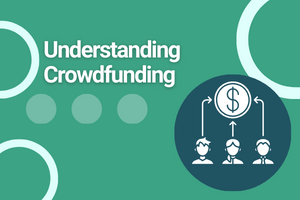 Crowdly CEO Dan Sullivan and I did a talk for The Capital Network on the pros and cons of crowdfunding for entrepreneurs and investors. The key point I made is that most people still confuse two very different kinds of crowdfunding activities.
Crowdly CEO Dan Sullivan and I did a talk for The Capital Network on the pros and cons of crowdfunding for entrepreneurs and investors. The key point I made is that most people still confuse two very different kinds of crowdfunding activities.
It is critical to understand that Product crowdfunding is what is going on on sites like Kickstarter and is a very interesting way of financing innovation at the product level. It is alive and thriving, as witnessed by the regular-as-clockwork news stories of successful Kickstarter and Indiegogo campaigns.
Equity crowdfunding, where you take stock ownership in a company, is a much different and more complicated thing. It is still evolving and, until the JOBS Act, was a violation of SEC rules. Although equity crowdfunding is now permissible amongst accredited investors, important SEC restrictions still apply.
To break this down further, I’ve created an outline of the key points to keep in mind for each type of crowdfunding...
Product Crowdfunding
Pros
- Access to capital you might not otherwise have
- Marketing buzz built-in if you tell your story well and understand social media
- Allows you to get your market validation before you launch
- No risk - don’t have to pursue if market interest insufficient
Cons
- Competitors alerted to your market interest level and its demographics
- Competitors know your price point
- Competitors know your design and feature list
- Competitors know your exact timing and can spread F.U.D. and launch alternatives
Product Crowdfunding Makes Sense For:
- Physical product companies (a minority)
- Consumer-oriented products that are relatively easy to understand
- Niche markets
- Smaller budget and more buzz-dependent projects
Product Crowdfunding Doesn’t Make Sense For:
- Entrepreneurs looking to build a big, long-lasting, multi-product company
- Complex products which take sales to explain
- B2B/Enterprise where customers cannot be reached through crowdfunding
- Products which do not prototype well and cannot be made in small initial batches
Equity Crowdfunding
Pros
- Could lower the cost of capital for companies
- Could democratize funding and returns from early-stage
- Could be good for national innovation and competitiveness
- More liquidity and efficiency in economy - redeploy resources faster
- Anti-globalism: helps the “little guy” compete better
- Freedom and individual empowerment
- Environmental benefits - productive work can happen anywhere
- Good for small, local one-off projects
- Potentially quickest source of capital - focus on product, not fundraising
- Raise small amounts quickly to hit early milestones - make next raise easier
- Build a large pool of advocates - ecosystem of support and ideas
- Built-in customer validation and feedback
- Extra buzz for early crowdfunding pioneers
- More data point than with one crazy billionaire investor
Cons
- Increased potential for fraud
- Potential for waste - competition for scarce funding does weed out some bad ideas
- Mismatch of goals, lack of understanding = failed expectations: disaster could bring regulatory boom down on professional angels who invest $20B+/yr
- Bubble-thinking / tulip craze mentality; buzz and momentum over substance - dot.com meltdown 2.0
- Lack of value-add from micro-investors who hinder more than help
- Management distraction
- Shareholder tensions - less attractive to subsequent professional investors
- One-shot deal; next round is still an issue
- Limited funding - better for prototype than go to market
- Could be legal pitfalls that make the company very hard to run or capitalize later
- Shallow, walk-away level of investor commitment
Equity Crowdfunding Makes Sense For:
- Companies needing funding for a specific product/project
- Companies in regions where capital is hard to form
- First-time entrepreneurs who can’t raise from larger investors
- Companies with hyper local projects (neighborhood/small business)
- Companies where the buzz is especially valuable or strong customer validation key gating item
- Projects requiring a broad, engaged fan base
- Entrepreneurs looking to float an idea
Equity Crowdfunding Doesn’t Make Sense For:
- Entrepreneurs who need value-added investors, mentors and advice to succeed
- Entrepreneurs who need industry expertise from investors to open doors and navigate opportunities
- B2B companies focused on enterprise
- Experienced “bankable” entrepreneurs who can raise conventionally
The bottom line is that there is probably a long-term place for both types of crowdfunding in our current marketplace. Product crowdfunding creates a tighter coupling between the company and the “investor” since the investor is generally buying the product or at least supporting the cause. As such it creates a community of like-minded people supporting the company.
Equity crowdfunding does the opposite - it exacerbates the distance already existing between a company and its shareholders. Historically significant investors were still pretty involved with the company - either through geographical proximity or significant due diligence to ensure the safety of a major investment. And large early investors in a company often helped a company with advice or connections. These patterns are still pretty common in traditional angel investing. However with modern crowdfunding those constraints are removed - in theory anyone can invest a small amount in any company, anywhere, any time, with little or no research.
Progress and innovation are always uncomfortable. But not everything that is new is automatically better, and often the disadvantages and unintended consequences take longer to surface than the immediately obvious benefits. The question you have to ask yourself - whether you are an entrepreneur or an investor - is can you live with the trade-offs associated with both of these kinds of crowdfunding.
For more on these topics, check out What Angels Need to Know about SEC Rule 506(c) and Understanding Crowdfunding.

